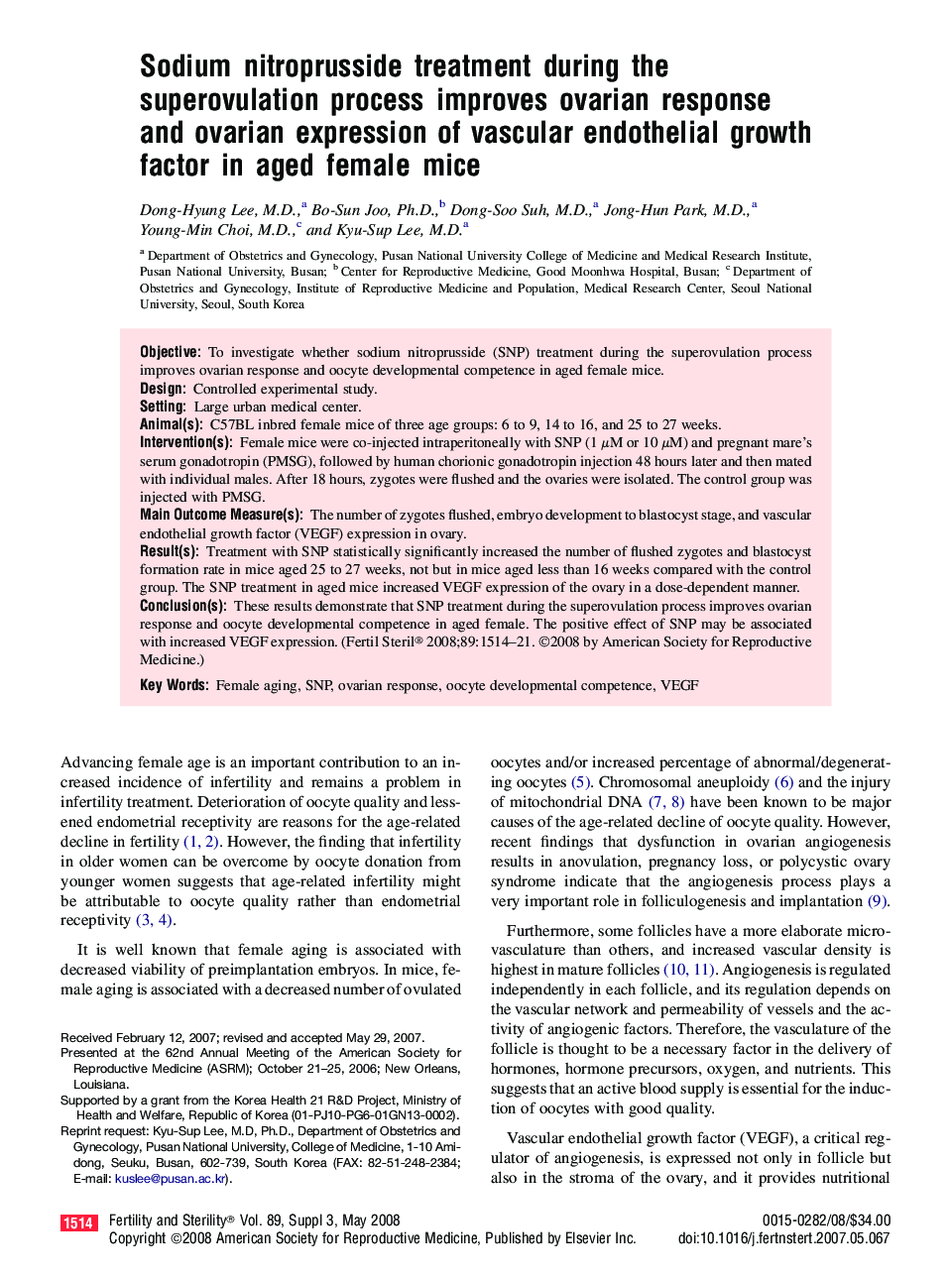| Article ID | Journal | Published Year | Pages | File Type |
|---|---|---|---|---|
| 3941785 | Fertility and Sterility | 2008 | 8 Pages |
ObjectiveTo investigate whether sodium nitroprusside (SNP) treatment during the superovulation process improves ovarian response and oocyte developmental competence in aged female mice.DesignControlled experimental study.SettingLarge urban medical center.Animal(s)C57BL inbred female mice of three age groups: 6 to 9, 14 to 16, and 25 to 27 weeks.Intervention(s)Female mice were co-injected intraperitoneally with SNP (1 μM or 10 μM) and pregnant mare's serum gonadotropin (PMSG), followed by human chorionic gonadotropin injection 48 hours later and then mated with individual males. After 18 hours, zygotes were flushed and the ovaries were isolated. The control group was injected with PMSG.Main Outcome Measure(s)The number of zygotes flushed, embryo development to blastocyst stage, and vascular endothelial growth factor (VEGF) expression in ovary.Result(s)Treatment with SNP statistically significantly increased the number of flushed zygotes and blastocyst formation rate in mice aged 25 to 27 weeks, not but in mice aged less than 16 weeks compared with the control group. The SNP treatment in aged mice increased VEGF expression of the ovary in a dose-dependent manner.Conclusion(s)These results demonstrate that SNP treatment during the superovulation process improves ovarian response and oocyte developmental competence in aged female. The positive effect of SNP may be associated with increased VEGF expression.
